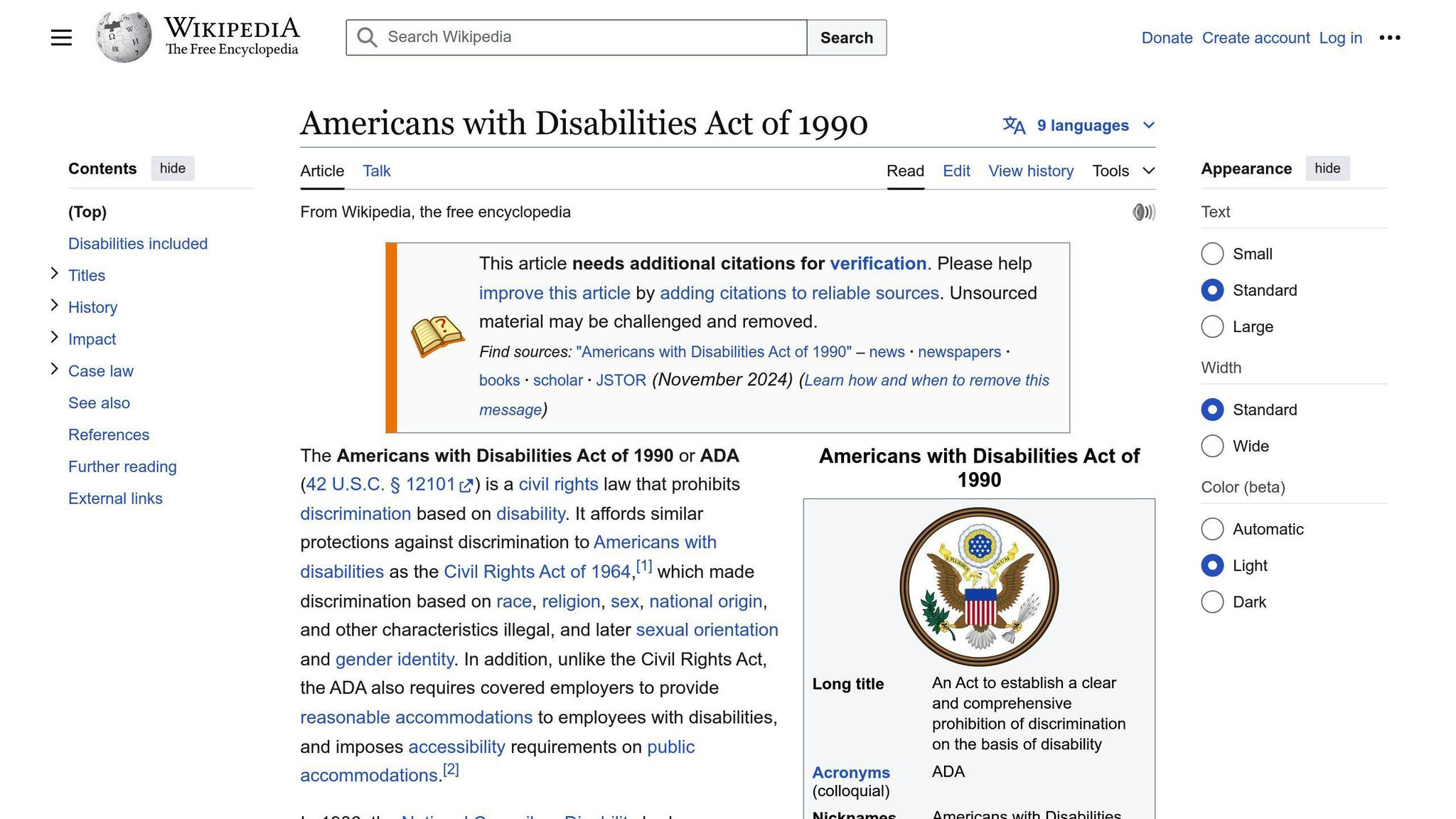Ensuring your e-commerce business complies with all relevant laws and regulations is crucial to avoid costly fines, legal troubles, and reputational damage. This checklist covers the essential steps to maintain legal compliance:
Related video from YouTube
Business Setup
- Register your business (sole proprietorship, partnership, LLC, corporation)
- Obtain necessary licenses and permits (sales tax, business licenses, special permits)
- Follow zoning rules for your business location
Policies and Consumer Protection
- Create clear terms of service and privacy policy
- Get customer consent for data collection
- Follow consumer protection laws (FTC regulations, COPPA, advertising guidelines)
- Provide accurate product information, pricing, and policies
Intellectual Property and Copyright
- Register trademarks and copyrights
- Obtain licenses for third-party content
- Prevent counterfeit product sales
Secure Payment Processing
- Use a secure payment gateway (PCI DSS certified)
- Implement security measures (encryption, two-factor authentication, tokenization)
- Prepare a data breach response plan
Shipping and Taxes
- Understand shipping regulations (prohibited items, customs, documentation)
- Provide clear shipping information and costs
- Collect sales tax based on customer location
Website Accessibility
- Create an accessible website (alternative text, keyboard navigation, screen reader compatibility)
- Follow ADA and WCAG guidelines
Stay Compliant
- Monitor legal changes and update practices accordingly
- Seek expert advice from lawyers and industry professionals
Prioritizing legal compliance protects your business, builds customer trust, and ensures long-term success in the e-commerce space.
| Key Area | Compliance Requirements |
|---|---|
| Business Setup | Business registration, licenses, zoning |
| Policies & Consumer Protection | Terms of service, privacy policy, consumer laws |
| Intellectual Property | Trademarks, copyrights, licenses, anti-counterfeiting |
| Secure Payments | Secure gateways, data protection, breach response |
| Shipping & Taxes | Shipping regulations, clear policies, sales tax |
| Website Accessibility | ADA, WCAG guidelines, accessible design |
| Staying Compliant | Monitoring legal changes, expert guidance |
Setting Up Your Business
Register Your Business
To start, you need to choose a business structure. Options include:
- Sole proprietorship
- Partnership
- Limited liability company (LLC)
- Corporation
Each has pros and cons, so research them carefully before deciding.
Next, register your business with state or local authorities. This usually involves:
- Filing articles of incorporation or organization
- Getting an Employer Identification Number (EIN) from the IRS
Get Licenses and Permits
Depending on your products and location, you may need:
- Sales tax permits
- Business licenses
- Special permits (e.g., for food or pharmaceuticals)
Check with your state or local government for requirements.
Follow Zoning Rules
Zoning laws control how properties can be used in an area. Make sure your business location follows these rules.
You may need to:
- Get a zoning permit
- Obtain a zoning variance
| Business Setup Step | Key Points |
|---|---|
| Register Business | - Choose business structure (sole proprietorship, partnership, LLC, corporation) - File articles of incorporation/organization - Get Employer Identification Number (EIN) |
| Get Licenses/Permits | - Sales tax permits - Business licenses - Special permits (e.g., food, pharmaceuticals) - Check state/local requirements |
| Follow Zoning Rules | - Ensure location complies with zoning laws - May need zoning permit or variance |
Properly setting up your business from the start helps ensure legal compliance and avoid potential issues down the road.
sbb-itb-d1a6c90
Terms and Privacy Policies
Having clear terms of service and a privacy policy is vital for your e-commerce business. These documents explain the rules, rights, and responsibilities for your business and customers, ensuring a smooth and trustworthy online shopping experience.
Write Terms of Service
A terms of service agreement is a contract between your business and customers. It outlines the rules for using your website and services. It should cover:
- How customers accept the terms
- Your business name, address, and contact details
- The products or services you offer
- How customers can make payments and accepted payment methods
- When customers can cancel purchases and get refunds
- Which laws govern the agreement and how disputes will be resolved
- How you'll notify customers of changes to the terms
A clear terms of service agreement protects your business and customers, ensuring a positive and secure online shopping experience.
Create a Privacy Policy
A privacy policy outlines how your business collects, uses, and protects customer data. It should cover:
- Types of personal data collected (e.g., names, addresses, payment details)
- How personal data is used (e.g., marketing, order fulfillment)
- Parties that may access customer data (e.g., payment processors, shipping providers)
- Measures taken to secure customer data (e.g., encryption, access controls)
- How customers can access, update, or delete their personal data
A clear privacy policy builds trust with customers, ensuring they feel secure sharing their personal information.
Get Customer Consent
To comply with data privacy laws like GDPR and CCPA, you must get explicit consent from customers before collecting their personal data. This can be achieved through:
| Consent Method | Description |
|---|---|
| Clear Language | Using simple, easy-to-understand language in your privacy policy and terms of service |
| Opt-in Mechanisms | Providing customers with opt-in options for data collection and use, such as checkboxes or buttons |
| Transparency | Clearly explaining how customer data will be used and protected |
Consumer Protection and Advertising
Follow Consumer Protection Laws
Laws protect customers from unfair or misleading business practices. In the U.S., the Federal Trade Commission (FTC) enforces laws like:
- The Consumer Protection Act (CPA): Prohibits unfair or deceptive acts that harm consumers.
- The Unfair or Deceptive Acts or Practices (UDAP) rule: Prevents businesses from misleading customers.
- The Children's Online Privacy Protection Act (COPPA): Protects children's privacy online.
These laws cover data privacy, advertising, and product safety.
Ensure Truthful Ads
Ads must be accurate and not misleading. E-commerce businesses should:
- Clearly disclose product features and benefits.
- Avoid false claims about products or services.
- Provide clear information about products, services, and any risks or limitations.
Provide Clear Information
Customers need clear, transparent details to make informed purchases. E-commerce sites should:
| Information to Provide | Details |
|---|---|
| Product Pricing | Clearly list product prices and any additional fees. |
| Product Descriptions | Detailed specifications and descriptions of products. |
| Shipping Policies | Outline shipping costs, methods, and estimated delivery times. |
| Return/Refund Policies | Clear policies on returns, refunds, and any associated fees. |
Providing accurate, easy-to-understand information builds trust with customers.
Intellectual Property and Copyright
Register Trademarks and Copyrights
Registering trademarks and copyrights protects your business's intellectual property. Trademarks safeguard your brand identity, like logos, slogans, and business names. Copyrights protect original works, such as website content, product descriptions, and images.
To register a copyright:
1. Submit a completed application 2. Provide a copy of the material to copyright 3. Pay a filing fee
This process can take up to 8 months, but it establishes legal ownership and strengthens your case if your works are infringed.
Get Necessary Licenses
When using third-party content on your website, ensure you have the proper licenses or permissions. This includes images, videos, music, and other digital content. Failing to obtain licenses can lead to copyright infringement and legal consequences. Always verify the licensing terms for any third-party content you use.
Prevent Counterfeit Sales
To prevent counterfeit or pirated goods from being sold on your platform, take these steps:
- Verify the authenticity of products before listing them
- Monitor your platform for suspicious activity
- Respond promptly to customer complaints about counterfeit products
- Collaborate with law enforcement and intellectual property owners to address counterfeit issues
| Action | Purpose |
|---|---|
| Verify product authenticity | Prevent listing counterfeit goods |
| Monitor platform activity | Identify suspicious listings or sellers |
| Respond to customer complaints | Address counterfeit product issues |
| Collaborate with authorities | Work with law enforcement and IP owners |
Secure Payment Processing
Handling customer payments securely is crucial for e-commerce businesses. Follow these steps to protect payment information and prevent fraud.
Use a Secure Payment Gateway
Choose a payment gateway that meets security standards like PCI DSS (Payment Card Industry Data Security Standard). Look for gateways certified by PCI DSS, such as PayPal, Stripe, or Square. These ensure your business processes online payments safely.
Implement Security Measures
Protect customer payment data with these security measures:
- Encryption: Use SSL/TLS encryption to secure data transfer between customer browsers and your server.
- Two-Factor Authentication: Add an extra security layer by requiring two-factor authentication during payment.
- Tokenization: Replace sensitive payment details with a unique token to reduce data breach risks.
- Security Audits: Regularly check for vulnerabilities and address them promptly.
Prepare for Data Breaches
Have a plan ready in case of a data breach:
| Action | Details |
|---|---|
| Notify Customers & Authorities | Inform customers and relevant authorities about the data breach. |
| Incident Response Plan | Develop a plan to quickly respond and minimize damage. |
| Customer Support | Provide support to address customer concerns and questions. |
Following these steps helps ensure secure payment processing and compliance with data protection laws.
Shipping and Customs Rules
Understand Shipping Regulations
Different countries have varying rules for shipping items. You must follow these regulations to avoid legal issues and ensure smooth delivery to customers. For example, there are strict rules for shipping hazardous materials that you must follow, such as proper packaging, labeling, and documentation.
Provide Clear Shipping Information
Be transparent about shipping costs, delivery times, and any customs duties or taxes. Customers dislike unexpected fees or delays, so set clear expectations upfront. You can:
- Negotiate rates with shipping providers
- Choose appropriate packaging
- Consolidate shipments
- Use hybrid shipping services
This can help reduce shipping costs.
Collect Sales Tax
Your e-commerce platform should calculate and collect the correct sales tax based on the customer's location. Understand the sales tax laws in different countries and states to ensure compliance. Failing to collect sales tax can result in legal issues and penalties.
| Shipping Requirement | Key Points |
|---|---|
| Understand Regulations | Follow rules for prohibited items, agricultural regulations, packaging, labeling, customs processes, and required documents. |
| Provide Clear Info | Communicate shipping costs, delivery times, and customs duties/taxes upfront to set expectations. |
| Collect Sales Tax | Calculate and collect the correct sales tax based on the customer's location to comply with laws. |
Making Your Website Accessible for Everyone
Create an Accessible Website
It's important to make your e-commerce website accessible so that all customers, including those with disabilities, can use it easily. This includes adding features like:
- Alternative Text for Images: Screen readers can describe images to visually impaired users.
- Keyboard Navigation: Users who can't use a mouse can navigate with a keyboard.
- Screen Reader Compatibility: Visually impaired users can access content with screen readers.
Here are some additional tips for an accessible website:
- Use clear and consistent navigation menus
- Provide closed captions for audio and video
- Ensure all content works with assistive technologies
Follow ADA Guidelines

The Americans with Disabilities Act (ADA) requires commercial websites to be accessible for people with disabilities. To comply with ADA guidelines:
- Use the Web Content Accessibility Guidelines (WCAG 2.1) as a reference
- Regularly check for and fix accessibility issues
- Provide a website accessibility statement or policy page
- Include "skip navigation" links and proper heading tags on all pages
| Accessibility Feature | Purpose |
|---|---|
| Alternative Text | Describes images for visually impaired users |
| Keyboard Navigation | Allows navigation without a mouse |
| Screen Reader Compatibility | Enables access for visually impaired users |
| Closed Captions | Provides audio/video transcripts |
| "Skip Navigation" Links | Helps users bypass repetitive content |
| Proper Heading Tags | Organizes content for screen readers |
Stay Up-to-Date
Laws and rules for e-commerce businesses change frequently. It's crucial to keep track of these updates to avoid legal issues and ensure your business runs smoothly.
Monitor Legal Changes
Regularly check for new laws and regulations related to:
- Consumer protection
- Data privacy
- Taxation
Set up a system to track these updates. Then, adjust your business practices to comply with the latest rules.
Seek Expert Advice
If you're unsure about legal requirements, consult with experts like:
- Lawyers
- Industry professionals
They can provide guidance on complex regulations and help you stay compliant.
| Action | Purpose |
|---|---|
| Monitor Legal Changes | Stay informed about new laws and regulations |
| Adjust Business Practices | Ensure compliance with the latest rules |
| Seek Expert Advice | Get guidance on complex legal requirements |
Don't hesitate to seek help when needed. It's better to be safe than sorry when it comes to legal compliance for your e-commerce business.
Conclusion
Following this legal compliance checklist is crucial for protecting your e-commerce business from legal issues and maintaining a trustworthy reputation. Legal compliance is an ongoing process that requires regular monitoring and updates to stay aligned with the latest regulations.
In today's digital landscape, e-commerce businesses face numerous legal challenges, from consumer protection and data privacy to intellectual property and taxation. Non-compliance can lead to severe consequences, such as fines, legal actions, operational disruptions, and reputational damage. By prioritizing legal compliance, you can avoid these risks and focus on growing your business.
Stay vigilant and proactive in your approach to legal compliance:
- Continuously educate yourself on new laws and regulations
- Promptly adjust your business practices to comply with the latest rules
- Seek expert advice when needed, such as from lawyers or industry professionals
Legal compliance is an investment in your business's future success and credibility. Don't wait until it's too late – take proactive steps now to ensure your e-commerce business is legally compliant and protected for years to come.
| Action | Purpose |
|---|---|
| Monitor legal changes | Stay informed about new laws and regulations |
| Adjust business practices | Ensure compliance with the latest rules |
| Seek expert advice | Get guidance on complex legal requirements |
FAQs
What are the rules for selling online?
When selling online, you must follow various laws and regulations. Here are some key ones:
- Intellectual Property Rights: Ensure you have the proper permissions or licenses to sell products or use copyrighted materials.
- Advertising and Marketing: Be truthful and transparent in your advertising, following guidelines like those from the Federal Trade Commission (FTC).
- Cybersecurity and Data Protection: Protect customer data and ensure your website is secure to prevent data breaches.
- Consumer Protection: Comply with laws like the Consumer Protection Act, which protects consumers from unfair or deceptive business practices.
- Secure Payment Processing: Use a secure payment gateway and comply with Payment Card Industry Data Security Standard (PCI DSS) regulations.
- Product Quality and Sustainability: Ensure your products meet quality standards and consider the environmental impact of your business.
- International Trade: Comply with regulations when selling products across borders, such as customs duties and taxes.
- Accessibility: Ensure your website is accessible to people with disabilities, complying with the Americans with Disabilities Act (ADA).
| Regulation Area | Key Points |
|---|---|
| Intellectual Property Rights | Obtain necessary permissions and licenses |
| Advertising and Marketing | Be truthful and transparent, follow FTC guidelines |
| Cybersecurity and Data Protection | Protect customer data, secure website |
| Consumer Protection | Comply with laws like the Consumer Protection Act |
| Secure Payment Processing | Use secure payment gateways, follow PCI DSS |
| Product Quality and Sustainability | Meet quality standards, consider environmental impact |
| International Trade | Follow regulations for cross-border sales |
| Accessibility | Comply with ADA for website accessibility |


